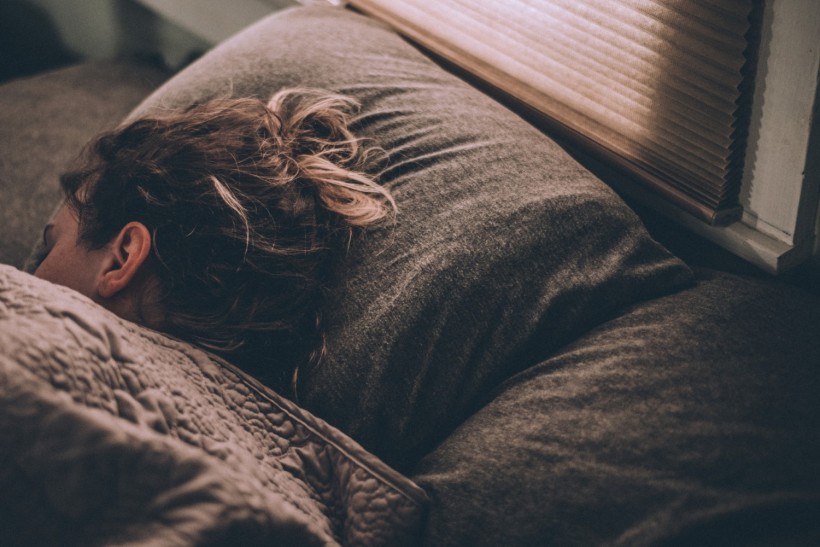Immigrants Struggle with Sleep Issues Significantly More than Non-Immigrants

Sleep issues correlate highly with mental health, and immigrants often struggle with significant stress due to their status. Whether an immigrant is in the United States legally or has arrived undocumented, this group often faces numerous hurdles.
Accessing healthcare, navigating a child's schooling, finding work, and putting food on the table are only a few issues many immigrants struggle with daily, regardless of citizenship. Sleep often suffers due to these obstacles, especially when coupled with anxiety, stress, or depression in the wake of immigration.
Sleep Deprivation & Immigrant-Related Stress
In 2015, 32.9% of the world population were immigrants. Unfortunately, data on migrants' health and access to social services is often contradictory, scarce, and understudied. However, from what we know, adverse health issues within these groups inside the developed regions to which they've migrated are significantly higher than the host population.
According to one health survey, immigrants are disproportionately burdened by adverse health outcomes due to mental health issues and acute stress. Compared to non-immigrants, this group appears to suffer significantly more from insomnia symptoms and other sleep disorders.
There appears to be an established correlation between low socioeconomic status and sleep issues. Regardless of how much support they have where they are immigrating to, immigrants typically must navigate a host of obstacles and governmental hoops compared to non-immigrants. Migrants are often strapped with high emotional distress and political uncertainty around their future, and evidence shows that sleep is poorly affected as a result.
Women seem to have higher rates of insomnia and sleep problems when compared to men. There could be numerous reasons for this disparity, and unfortunately, concrete evidence is lacking. However, one theory is that, culturally, women may endure a greater responsibility for familial well-being, household duties, and looking after children.
Despite cultural or traditional gender norms, this is not to say that men don't struggle with significant sleep issues. Sleep issues still correlate highly with males, which could be attributed to several factors, including the reasons mentioned with females above, like familial emotional responsibility, household duties, and childcare. In addition, sleep issues have a strong relationship with unemployment, substance abuse, and mental health issues.
Insomnia & Immigrant-Related Depression
Depression and sleep problems are closely linked. Data from the Latino Adolescent Migration, Health, and Adaptation study, shows that first-generation immigrant youth were associated with depressive symptoms due to migration stressors. Looking at the data, it appears that immigration stressors commonly induce anxiety and depression due to settlement status, which often leads to sleep issues.
Immigrants are at a greater risk of depression due to numerous factors. Leaving home, family, friends, jobs, and familiar surroundings behind despite safety risks in their country of origin can still leave individuals deeply traumatized with debilitating emotional scars. Depression is a likely side effect, and symptoms of insomnia are common as a result.
The Latino population faces a multitude of obstacles when looking to gain equity with non-immigrant communities. Poor socioeconomic resources, low educational attainment, and risk of behavioral problems (often due to these challenges) appear to directly affect mental and emotional health- prompting issues with sleep.
Documented adolescents appear to suffer less than undocumented adolescents, and children in mixed-status families show to suffer greater risk. The higher risk of mental health issues in mixed-status families could be attributed to fear and uncertainty about the potential deportation of an undocumented family member, particularly if that member is a significant provider or caretaker.
How Immigrants Might Get Help
Dr. Nishi Bhopal, a member of Sleep Advisor's expert review panel, states, "Immigrants are shown to have more frequent difficulties falling asleep and staying asleep; this may be related to the changes in lifestyle that come with integrating into a new culture, including changes in diet, differences in working hours, and even higher risk of obstructive sleep apnea and metabolic diseases. However, refugee populations are more often affected by sleep disturbances related to trauma and mental health conditions like PTSD."
Dr. Bhopal goes on to explain that "physicians caring for immigrant populations should screen for sleep disorders and assess predisposing and precipitating factors for sleep disturbances."
Resources, unfortunately, could be hard to find for immigrant communities. Going through governmental programs to find assistance may be risky and aren't always an option, depending on the state. However, some organizations are happy to provide help.
Religious Institutions
Churches, synagogues, or temples, particularly in sanctuary cities, may offer counseling services and mental health assistance for families in need. In addition, many institutions will provide services regardless of religious affiliations.
Counseling Centers
Some non-governmental organizations have created services to offer mental health assistance and advocacy for the Latinx immigrant community and other immigrant groups. Community centers often have free resources, and others often provide services on a sliding financial scale based on household income levels.
Human Rights and Advocacy Organizations
Certain organizations provide assistance specifically for immigrant groups. The National Alliance for Hispanic Health is a great place to start. Further, some universities offer free counseling services provided by psychology students under the guidance of a licensed professional.
Other Organizations
Crisis Text Line is a free service primarily run by volunteers that provides guidance and support through text messages. You can connect with someone 24 hours a day, seven days a week, by texting HOME to 741741. The platform is equipped with specially trained counselors to help those in crisis and individuals enduring various difficulties.
Based on: https://aasm.org/sleep-disturbances-more-common-for-immigrants-than-non-immigrants/
Subscribe to Latin Post!
Sign up for our free newsletter for the Latest coverage!













